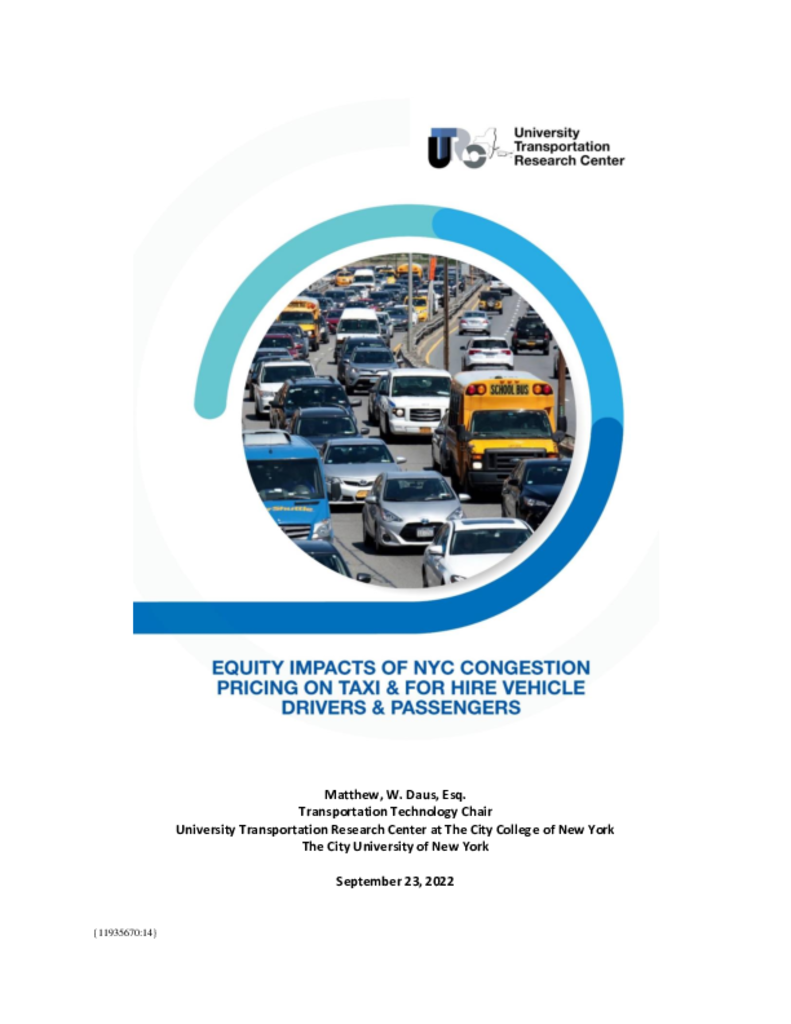There are three principal types of equity considerations that relate to the distribution of benefits and burdens of congestion pricing: (1) income equity, (2) geographic equity, and (3) modal equity. This report attempts to look at first two, with a specific focus on taxi and for-hire vehicle (“FHV”) services. The benefits and burden of the proposed Central Business District (“CBD”) Tolling Program—commonly referred to as congestion pricing—may not be distributed equally among all drivers and passengers of taxi and FHV services. There are several key findings from this report. First, taxi and FHV passengers have paid their fair share to the Metropolitan Transportation Authority (“MTA”) through the congestion surcharge implemented in February 2019 that applies to trips below 96th Street in Manhattan. Stacking congestion pricing on top of the congestion surcharge is simply a double taxation.
Second, the taxi and FHV industries have not fully recovered from the aftermath of COVID-19, and any drastic fare hike might further dampen ridership. If not done carefully, this might lead to a wave of job loss for many taxi and FHV drivers. Additionally, the mitigation actions proposed for these drivers in the Environmental Assessment (“EA”) of the CBD Tolling Program are nothing short of impractical to prevent potentially massive job displacement.
Third, the CBD Tolling Program would likely impose additional financial burdens on the numerous persons from low-income neighborhoods and/or transit deserts—areas that are at least a 15-minute walk to the nearest subway or rail station—who use FHVs to enter the Manhattan CBD. In light of these findings, we would strongly recommend the CBD Tolling Program be paused while an environmental impact statement (“EIS”) is prepared to address the Program’s impact on low-income drivers and passengers. If the Program moves forward now, then the report supports exempting taxis and FHVs from the CBD Tolling Program altogether.




